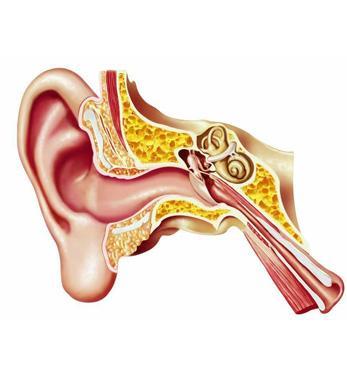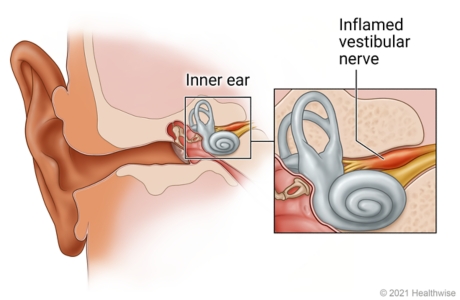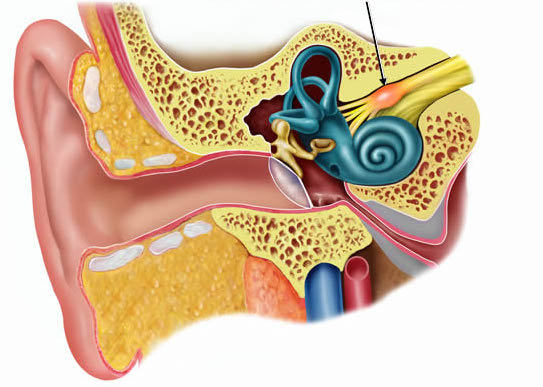

Vestibular Neuritis is characterized by sudden onset of severe vertigo (dizziness) without accompanying hearing loss, ear problems such as tinnitus, or neurological problems (paralysis, tremor, loss of consciousness). Dizziness is accompanied by intense nausea and vomiting. The patient panics. There may even be a fear of death. It can cause severe nausea, difficulty eating and drinking water. The illness lasts from two days to six weeks.
The complaints are so severe at the beginning that patients cannot walk alone. It takes a long time to fully return to daily life. Young people recover faster than older people. No permanent damage occurs after the disease.
For the diagnosis of Vestibular Neuritis, both an otolaryngological examination and a neurological examination are required. The diagnosis of the disease is made after investigating all causes affecting the balance nerve and distinguishing other disorders that may cause vertigo. Ear, nose and throat examination is normal in all patients. Hearing test, ENG test, caloric test are used in diagnosis. MRI can be planned to rule out brain pathologies.

What Causes Vestibular Neuritis?
The cause of the disease has not been fully elucidated in the studies and although it is not certain that the cause may be inflammation or infection, the most important factor is viral infections. Recent upper respiratory tract infections are reported in half of the patients.

What are Vestibular Neuritis Treatment Methods?
Since the causative agent cannot be determined clearly, treatment is aimed at relieving the symptoms at first. Because dizziness is very severe, patients should be hospitalized and treated. Physical activity should be restricted. In the first days, treatment with serum and intravenous drugs should be given because the drug acts quickly and oral drugs do not work due to vomiting. The ultimate goal of treatment is to adapt the brain to vertigo. Therefore, prolonged conversion to medical treatment should not be continued. After the acute dizziness attack has passed, balance exercises should be started immediately.
Patients should stay away from salt, cigarettes, alcohol, coffee, cola, greasy fries; Eat as healthy as possible.